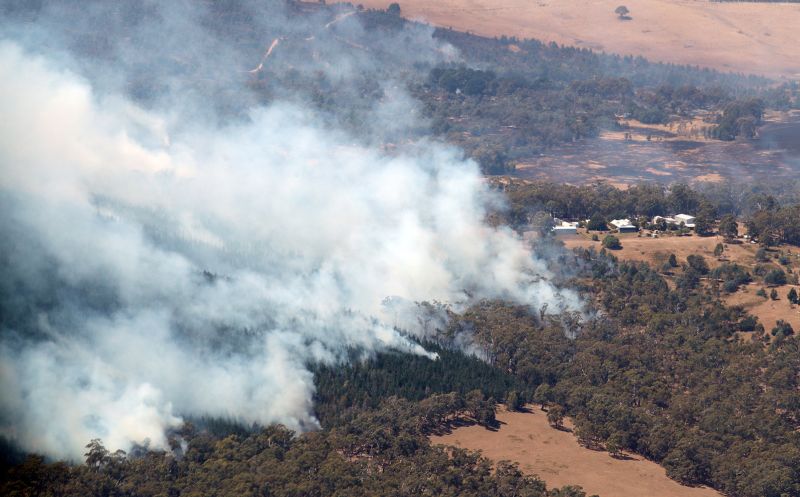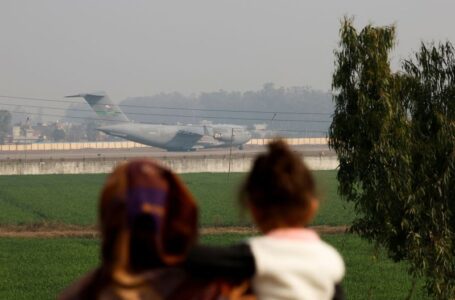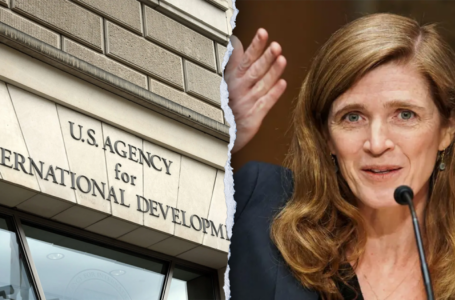Leader Thune backs Senate GOP bid to speed past House on Trump budget plan
Australian state orders 30,000 people to evacuate due to ‘catastrophic’ fire risk


Firefighters in Australia are battling a huge blaze that has forced the evacuation of tens of thousands of people amid some of the worst fire conditions the country has seen in recent years.
Hot, dry and windy conditions have created “extreme to catastrophic fire dangers” in parts of Victoria and South Australia, according to Australia’s Bureau of Meteorology.
Severe thunderstorms are also forecast in the region, which bring the threat of dry lightning – strikes that occur during a storm where the rain evaporates before hitting the ground.
Around 30,000 people had been ordered to evacuate parts of Victoria before midday Wednesday, when authorities warned it would be too late to leave.
Temperatures are rapidly rising to the 40°C range (104°F), with wind gusts reaching 60 to 70 kilometers per hour (37 to 43 mph), according to an update from Jason Heffernan, chief officer at Victoria’s Country Fire Authority (CFA), the state’s volunteer fire service.
“Extreme fire dangers are coming to fruition, and in fact we’re currently seeing catastrophic conditions in Casterdon, Hamilton and Kanagulk in the Wimmera weather district,” he said.
“The frontal system making its way through the state has slowed. So, we will see these winds and these temperatures stay around for a bit longer than expected. And I don’t expect this change to come through metropolitan Melbourne now until between 9 and even 10 o’clock this evening.”
Firefighters have been battling a bushfire that started last Thursday in the rural town of Bayindeen, about 190 kilometers (118 miles) west of Melbourne, and is not yet under control, according to the state’s emergency department.
Six homes have already been destroyed and authorities fear windy and dry conditions may fan the flames close to high-density residential areas.
An “extreme” fire rating has been issued for large parts of Victoria, while the state’s western Wimmera region was given a “catastrophic” risk, meaning that if fires start, they will be “uncontrollable and uncontainable,” according to the Bureau of Meteorology.
More than 100 state forests have been closed, the Forest Fire Management of Victoria said on social platform X. Dozens of schools and child care centers have also been shut.
The fires come more than four years since bushfires destroyed wide swathes of southeastern Australia, killing 33 nationwide, in what has been called the Black Summer wildfires of 2019 to 2020.
The state of Victoria suffered immensely from the fires, which raged for more than 90 days and burned more that 1.5 million hectares of land, the majority of which were forests, parks, and plantations that covered critical animal habitats, according to the state’s Country Fire Authority.
More than 400 homes were destroyed, and 6,800 livestock killed in the disaster that caused billions of dollars of economic damage to Victoria.
Experts have warned that Australia could see another catastrophic fire season this year as the impacts of El Niño event — a natural climate fluctuation which can bring hot and dry conditions to parts of the country — with the underlying trend of human-caused global warming.
As the world continues to heat up, increasing the likelihood of the “fire weather” that fuels faster and more intense blazes, scientists say the risk of extreme bushfire seasons will increase.











